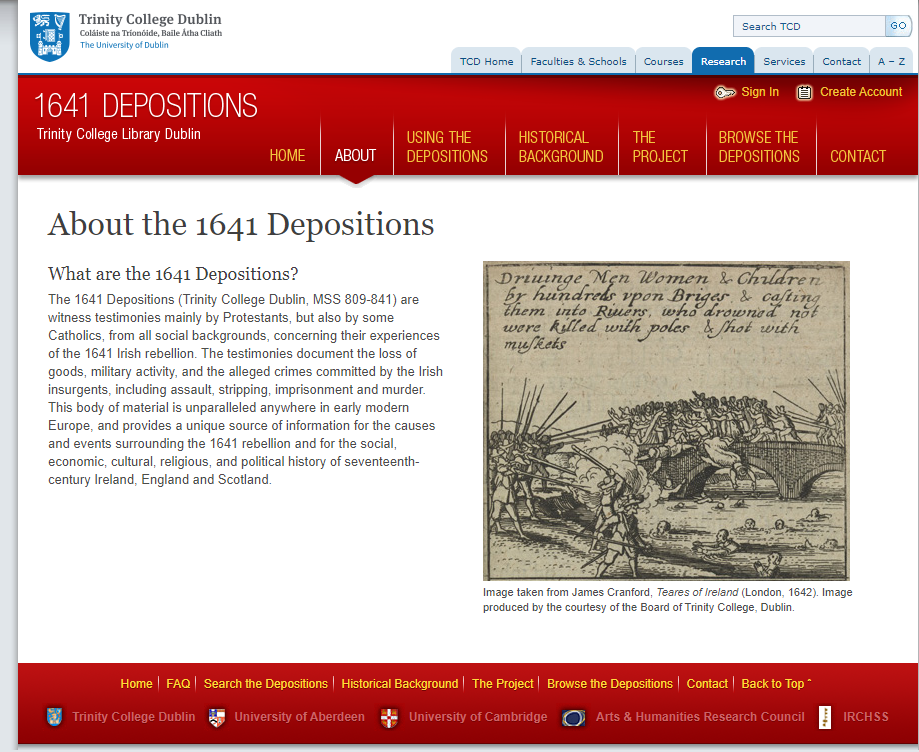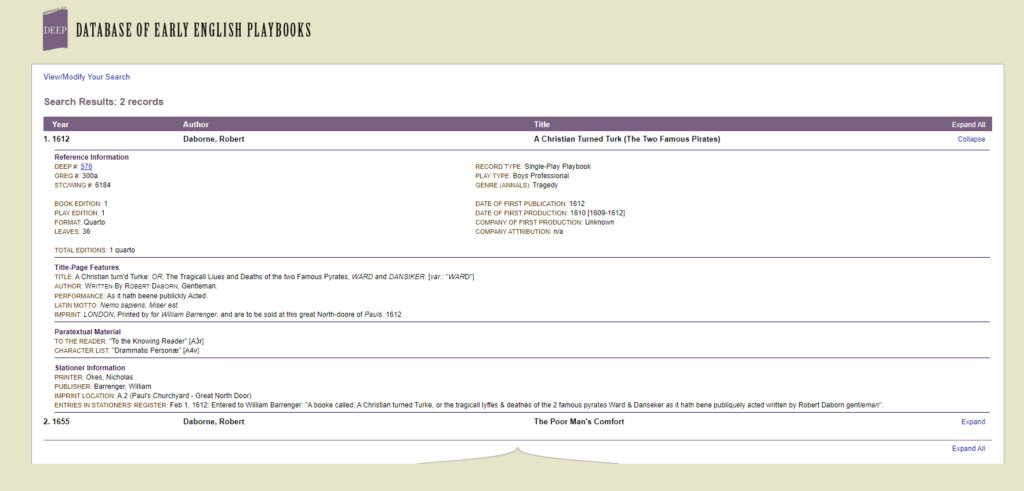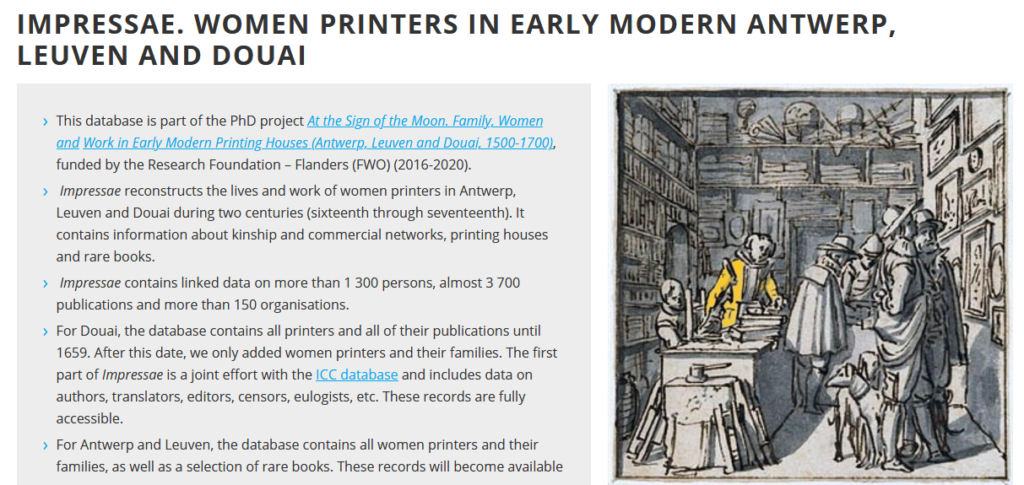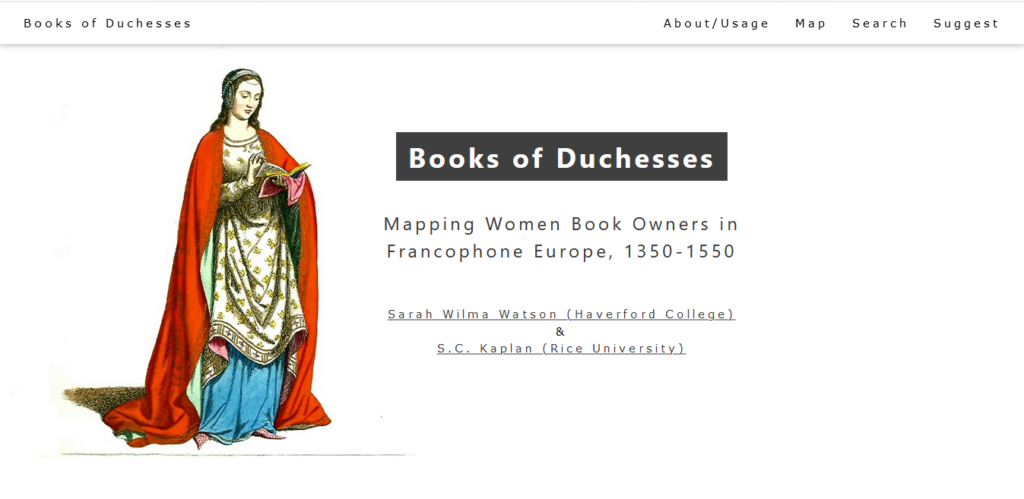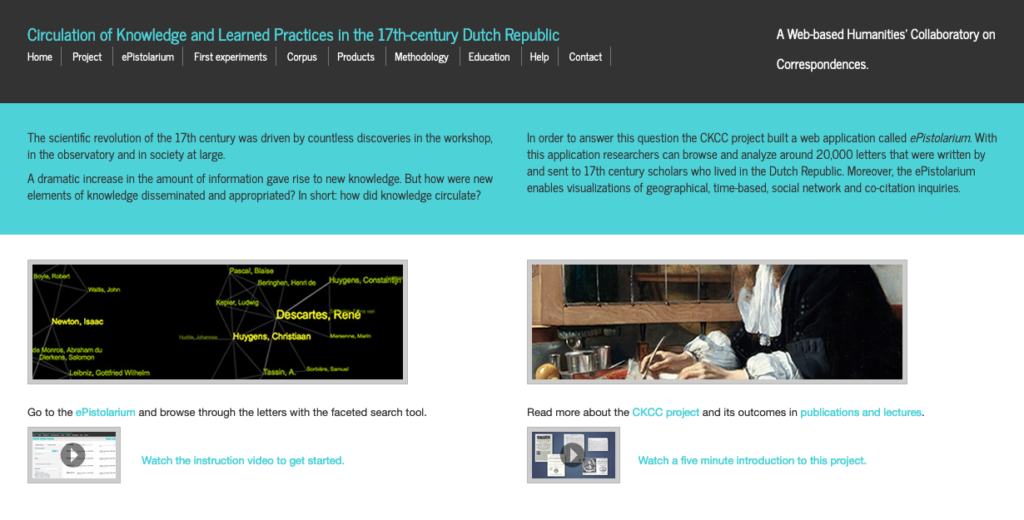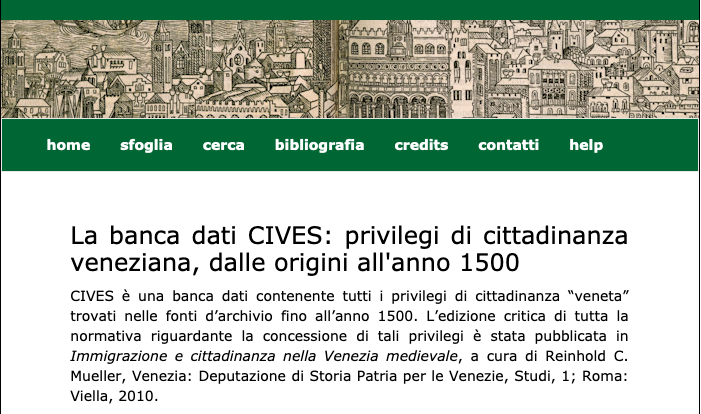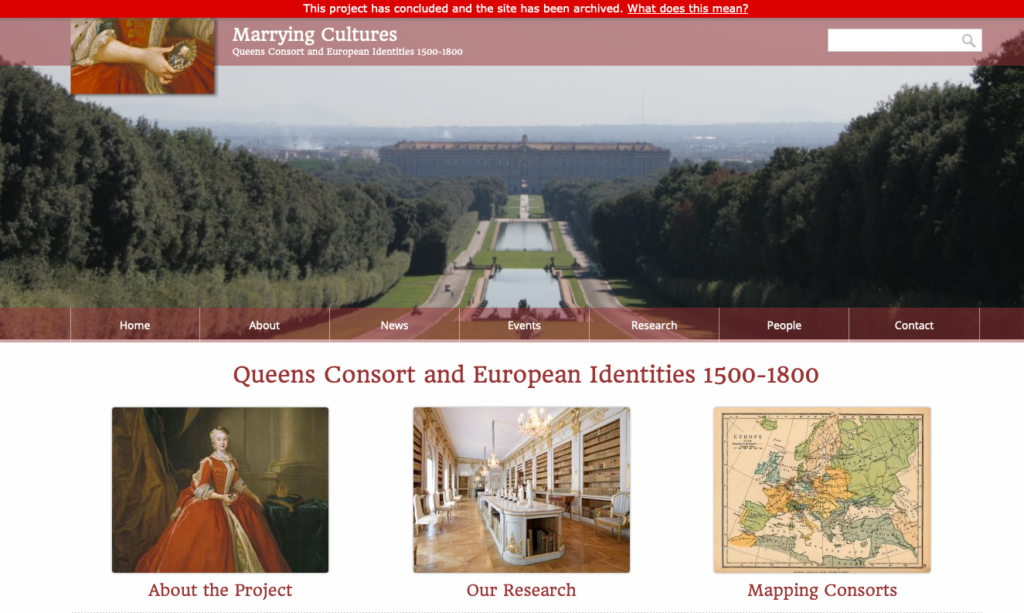
An online archive of digitized broadside ballads from American and European libraries. Includes ballad sheet facsimiles, facsimile transcriptions, and recordings, and an extensive catalog with basic and advanced search functions. Recently added features include a visualization tool for topic modeling, a woodcut search using image recognition, and ballad illustration costume book.

